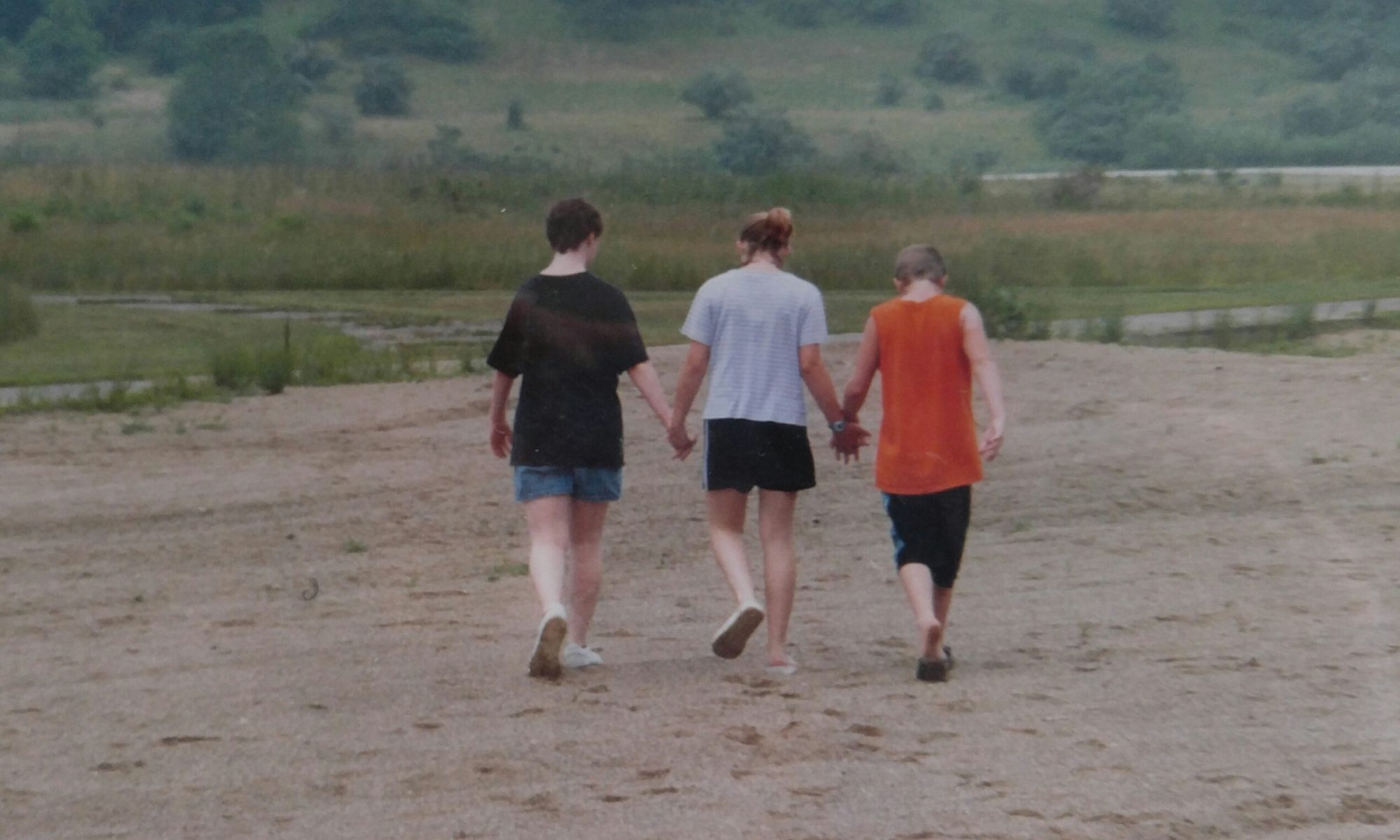Telling your child someone they loved has passed away is never easy. When that child has autism, it can be even more difficult. I’ve had to tell the kids before about a death, but those were elderly people. Today, they had to hear that their grandpa was gone.
They knew he had been sick and in the hospital. Casey has been talking about Grandpa Bill and Heaven for a few days, but last night, she was saying he was going. She always smiled when she said it. She often smiles or giggles when she is nervous or isn’t sure how to react. But then I realized she was smiling because she was happy for him. She knew he was going to see Grandpa Jones (his dad) in Heaven.
I got choked up. When their great-grandparents passed away, we talked about Heaven and being with Jesus. During our lessons for church, we talked about Jesus and how good people go to Heaven when they die. She firmly believes in Heaven and Jesus, even if she can’t go there. It’s a real place to her – like the state she lives in. She may not completely understand death, but she isn’t scared or unhappy about it.
Rob hasn’t said much, but he rarely does. He knows about Heaven, but I think he sees it as a place like Oz. It’s beautiful and some people go and others don’t. He will ask for Grandpa Bill at times, I’m sure – probably when he visits his house. He is a little anxious today, but I don’t know how much is from Grandpa and how much is the weather and the long weekend.
Casey is laying on the couch now reciting everyone she knows how has gone to Heaven – Bonnie, Grandpa Hopkins, Grandma Hopkins, Grandpa Jones, Bingo. She is laughing and giggling. She isn’t crying, but I am. She asks “Mommy sick?” I tell her I’m not sick, just sad. Now, she is confused, because Heaven is a good place.
So I tell her again that yes, Heaven is good. I tell her I am sad because I miss the people who are there. She says “talk?” Yes, Casey, I want to talk to them again. Now she says “Talk!” – not a question, but a statement. Because, when Casey and Rob want to talk to someone, they talk. I can’t count the number of times I’ve heard one or the other talking to Grandpa Jones or Grandpa Hopkins. It is so simple to them.
I can’t tell you exactly how to explain death to your child with autism. The best advice I can give is to say to know your own feelings before you begin. If you believe in Heaven, then share that with them. If you have other beliefs, then share those. And get ready for questions you may not want to answer when you are upset yourself. The questions may not end for months.
I would caution you not to use phrases like “went to sleep” or “gone away.” People with autism are so literal that hearing someone went to sleep and will never be seen again is just asking for sleep issues. Would you go to sleep if you thought you would disappear? I doubt it. Avoiding sleep could become an obsession. The same with saying “gone away” – your child may wonder if every time they can’t see you if you have left forever.
Tell your child the truth. They may not understand the concept completely, but at least they won’t develop other issues because you took the easy way out. Tell them what you believe and let them take the lead about questions. I didn’t take Casey or Rob to any of the funerals and I won’t. I want them to think of Grandpa in Heaven, not laying so still in a building they drive by all the time.
I am in no way saying my way is the right way. You have to do what’s right for your child and your family. Much of it depends on your child’s abilities. Some people with autism understand death and can handle funerals. Casey and Rob are not those people. They won’t understand why Grandpa doesn’t talk to them. They won’t understand why they never go back to that place to see him.
Explaining death is hard for anyone. There are books for you to read to your child if that would be easier for you. Before you do anything, please decide what you believe and follow that belief. If you are confused, you will never be able to help your child through this difficult time.
Don’t be upset if your child has little or no reaction to losing someone they love. That doesn’t mean they didn’t love that person – it simply means they don’t understand. Or maybe they understand and believe in a happier place where we will all be together some time. Don’t try to force your child to show emotion.
If attending the funeral will be too hard, find someone to stay with your child. You need time to grieve without trying to take care of your child, too. You will become upset quickly if your child doesn’t sit quietly in the service. Save yourself some stress and leave them home. Or find someone to stay in a quiet room at the funeral with them.
Let your child see you upset. Let them know it’s ok to cry. Or laugh or whatever emotion they feel. Be ready for more behaviors or anxiety. Make sure you tell their teacher or aides what has happened.
As for me, I’m going to try harder to follow Casey and Rob’s lead. I’ll try harder to keep the simple faith that no matter how much I miss someone, they are in a happier place and I will see them again some day.


Wow, again, Jen and so clear for All of us. 😊
Thank you, Lyn! 🙂